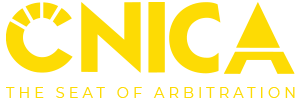In a recent case, Quess Corporation v Netcore Cloud Pvt Ltd, the Bombay High Court has held that an arbitrator’s acceptance of a brief from a law firm or advocate representing a party in an arbitration, will not result in disqualification or ineligibility if the matter in which the brief has been accepted is unrelated to the arbitration.
The dispute arose between Quess Corporation and Netcore Cloud Pvt Ltd regarding a contract, and Netcore invoked arbitration in accordance with the contract. The court appointed a sole arbitrator, the nominee of Netcore, under section 11(6) of the Arbitration and Conciliation Act, 1996, after Quess had objected to his appointment.
At a preliminary meeting, the arbitrator made disclosures under section 12(5) of the act, stating that he had no interest in the subject matter of the arbitration that would cast doubt on his independence and impartiality. However, Quess later discovered that the arbitrator had been representing counsel for Netcore in various matters, including proceedings in the high court.
Quess argued that the arbitrator had become ineligible to continue as such under section 12(5), read with Schedule VII of the act. Quess submitted that the arbitrator was unable to perform his functions, and the issue of ineligibility went to the root of his appointment, making him lack inherent jurisdiction to proceed further. Quess was able to apply to the court under section 14(2) of the act to terminate his mandate.
The court, however, dismissed the petition under section 14(2) and relied upon the judgment in Sheetal Maruti Kurundwade v Metal Power Analytical (I) Pvt Ltd, which held that an arbitrator’s acceptance of a brief from a law firm or advocate representing a party in an arbitration will not lead to disqualification or ineligibility if the matter in which the brief has been accepted is unrelated to the arbitration.
The court also referred to Schedule V of the act, which sets out various situations regarding disqualification of arbitrators. Item 3 in Schedule V is the same as item 3 of Schedule VII, which Quess had relied upon. Items 4 and 25 of Schedule V disqualify partners of a law firm from acting as arbitrators where their law firm represents one of the parties in arbitration.
The court held that although non-disclosure may be fatal, disclosure accepted and waived would not result in disqualification. Section 12(5) speaks of ineligibility and is linked to Schedule VII, but the proviso to that sub-section contemplates a waiver as possible.
At the broadest level, the court stated that no arbitrator should be involved in any manner with one of the parties to the dispute, or a partner with a lawyer or law firm appearing in the arbitration, or representing the law firm or lawyer personally. The court decided that where counsel has accepted a brief from a particular attorney, advocate on record, or lawyer for some other client, this situation, by itself, does not require disqualification or ineligibility because the disqualification connection must be between the arbitrator’s counsel and the litigant.


